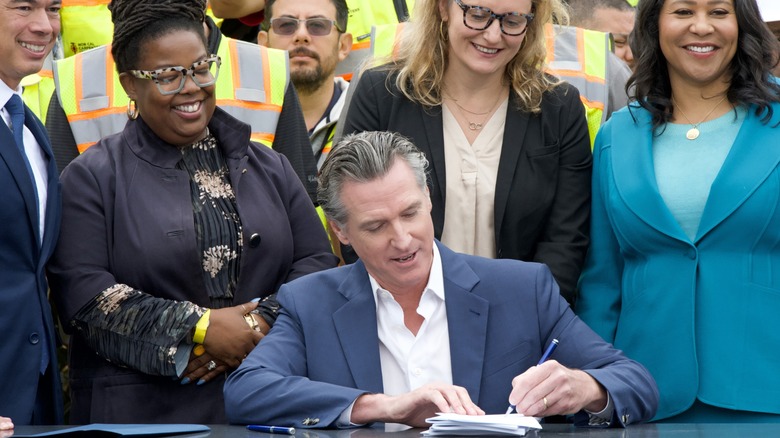California Signed The CARS Act To Further Protect Car Buyers - Here's What It Consists Of
One of the many things first-time buyers get wrong when buying a new car is trusting everything a dealer says. But who else should you trust if not the person selling you the car? Well, that's the problem. Dealers have been able to get away with a lot, from odometer fraud schemes to misleading prices and hidden fees, because there weren't enough rules in place to stop them. But that's about to change in California.
On October 6, 2025, Governor Gavin Newsom signed a new law that gives car buyers way more protection. It's called the California Combating Auto Retail Scams (CARS) Act, and it goes into effect October 1, 2026. Basically, it targets all the shady sales tactics that have frustrated people at dealerships for years. Under this law, dealers have to follow stricter rules about how they advertise and sell cars. They can't lie or mislead you about the price, financing terms, or whether a car is actually available.
If they advertise a car at a certain price, they have to sell it at that price — no more bait-and-switch. They also have to show you the full cost of the car upfront in any ad or written message, not just a low number with hidden fees added later. The law also stops dealers from charging you for unnecessary extras like oil changes for electric cars. And if they do offer beneficial add-ons like extended warranties, they have to tell you in writing that these are optional and you can buy the car without them.
So what exactly does California's CARS Act change?
You know how you walk into a dealership, see a car advertised at a certain price, and then suddenly the final number is thousands more because of fees nobody mentioned in the beginning? Or how dealers pressure you into buying extended warranties you don't actually need? Well, essentially, this legislation makes it illegal for dealerships in California to misrepresent key information about the vehicle. And they can no longer charge customers for products or services that provide zero benefit.
But the biggest change here just might be the new three-day return right for used vehicles priced under $50,000. If you buy a used car and change your mind, you can return it within three days for any reason. The only catch is you can't have driven it more than 400 miles, and it needs to be in the same condition as when you bought it. This replaces California's old contract cancellation option, which dealers used to charge extra for and had way more restrictions.
The dealer can charge you a restocking fee when you return the vehicle. It's 1.5 percent of the sale price, but no less than $200 and no more than $600. If you've driven more than 250 miles, they can tack on $1 per mile over that limit, up to an additional $150. So worst case, you'd pay $750 to return a used car you regret buying, which honestly beats being stuck with a bad decision. But even with these new protections in place, you should still take care to avoid the common mistakes people make when buying a used car.
What else do you need to know before shopping?
There are a few things to keep in mind if you're buying a car at the dealership in California after October 1, 2026. The three-day period starts the day after you sign the paperwork. If the third day lands on a day the dealership is closed, the deadline bumps to the next business day. You have to return the car in person during business hours, and it can't have any new damage beyond normal wear and tear. And if the dealer already sold your trade-in, they have to give you back either the agreed-upon trade-in value, whatever they sold it for, or its fair market value — whichever is highest.
Now, all of these new protections only work if dealers actually follow the rules. That's why the CARS Act also requires dealerships to keep detailed records for at least two years. That includes copies of every ad they run, every contract a customer signs, proof that add-ons actually do what they're supposed to, and documentation of any returns or refunds. The law also changes when you have to pay for extras. Now, dealers have 10 days to pay the companies that provide those services.
That gives you more time to think instead of feeling pressured to decide on the spot. And now dealerships have to put up a notice in every sales office and signing room, with at least 36-point type, that informs customers that California has a cooling-off period for used cars priced at $50,000 or less. That three-day return window does not apply to brand new cars, motorcycles, or off-road vehicles.


